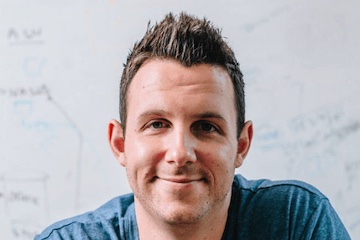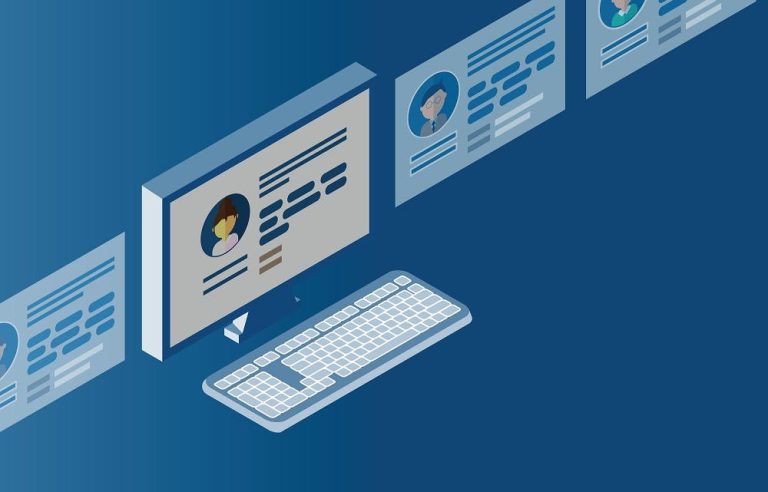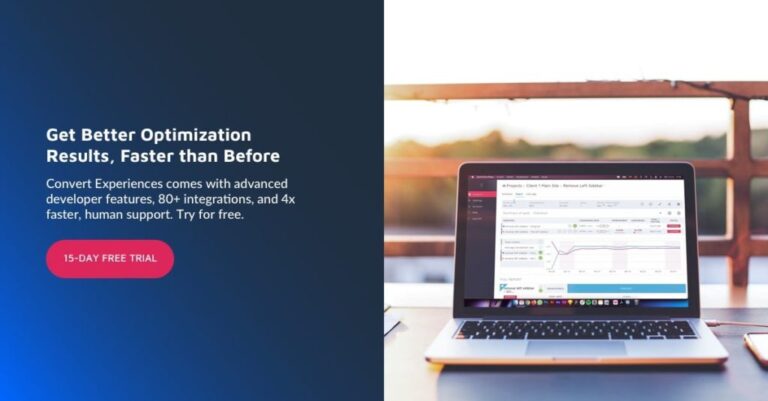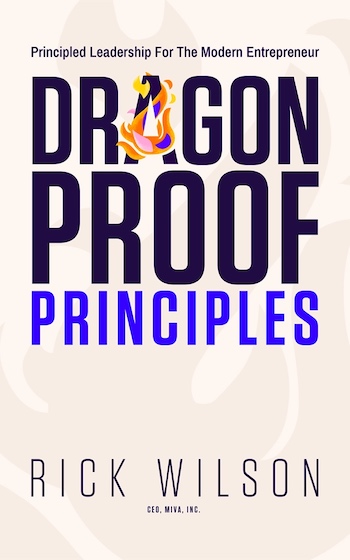
Hauser: Yes. We went from a high-margin, no inventory business in software-as-a-service to low-margin, high-inventory in CPG. I’m happy we did. We took a lot of the learnings from software-as-a-service, especially on the marketing side, and applied it to a new industry.
We definitely seek repeat purchasing behavior, even if it’s not on a per-product basis, although we love consumable products. Beardbrand experiences this when folks keep buying the same stuff. That’s a great customer. We like the potential of omnichannel. And then, lastly, no more than 60% of revenue on Amazon. There’s plenty of buyers for Amazon businesses, but not us.
Hauser: No. The systems have been around for a long time. We were the first to aggressively target, market, and build solutions for the entrepreneur and small business owner.
Bandholz: I like your outlook. Money and fame are not the answers. Once we realize the journey is the way, it’s a lot more fun. Why did you sell Grasshopper? Hauser: I love helping entrepreneurs realize the next step in their journey. I love experiences over material things. I’ll spend a lot of money on experiences and very little on physical things, like a car. That realization was powerful because I’m naturally frugal. But if it’s an experience, I’m not going to be frugal. That freedom delivered more happiness.
Hauser: I was never interested in selling the company. We had no exit plan. Our core purpose was to empower entrepreneurs to succeed. You don’t have an end game when that’s your core purpose.
Bandholz: Now you’re buying consumer-package-goods companies.
Hauser: It’s not that you can’t do those things, it’s that you have changed your time value. Managing the calendar and mailing something are too small compared to the other things you could do. That’s the evaluation we naturally make as humans as we progress. I spent a lot of time thinking about not just my skills but what I wanted to do.
Two, is someone willing to pay you more than you value it? We were getting to the end of our time at Grasshopper of growing it and being super passionate about it.
How did we know when to sell? A few things were a factor for us. One, all of our net worth tied up in one asset.
The other two pieces are learning and connections. I wanted to be a lifelong learner. So now I invest more time reading or listening to books. I’ve gone back to the classics, the books I was supposed to read in high school.
When I sold Grasshopper, I spent a lot of time on myself. I did a 200-hour yoga teacher training, invested heavily in my health and all the things I had neglected. I spent time just sitting and thinking and finding my identity, what I care about, what I want to optimize for. I decided to optimize for happiness, not for return on capital or profit.
Hauser: We are best suited for scaling and growing brands, not launching them. Our skill set, expertise, and teams are built for a different stage. We look for companies doing more than million in sales.
Our entire audio conversation is embedded below. The transcript that follows is edited for length and clarity.
I built Chargify [subscription management] in the recurring billing space, sold it twice, most recently to Battery Ventures. I’ve made over 100 angel investments, mostly in SaaS, but also in other areas such as consumer packaged goods, marketplaces, and similar. I’ve been lucky to work with great people through that time.
Bandholz: Where can people learn more about you to reach out?
Bandholz: I’ve become incompetent at remedial things to an obscene level. Managing my calendar. Mailing something. I’ve lost the ability to execute on a hands-on level.
Bandholz: What makes you happy?
Happiness to Hauser includes helping other entrepreneurs. He’s now an investor, having formed Repeat Capital Partners, which acquires up-and-coming brands across multiple industries. He and I recently discussed his journey, from selling Grasshopper to, now, building a holding company of acquired businesses.
There’s something to be said about creating something that can be touched and held — something that people value. It’s different than software. We wanted to experience that. We found success there, and we’ve now purchased multiple properties, most recently Perfect Keto, a very large keto [nutrition] brand.
We take majority ownership. We control and then build and scale with our playbooks and processes. But we try to structure it in a founder-friendly way with a long-term upside.
Hauser: Definitely the long term. We’re not looking for short-term flips. We want to create a platform of strong brands that can stand on their own. I take from Berkshire Hathaway’s example, how they buy companies. It’s not a short-term bet to flip in two years. It’s to keep for 30 years.
Bandholz: Are you building a holding company for the long term, or flipping?
Bandholz: What are the valuations for companies in your target size?
Hauser: We try to be very friendly to founders because we’ve been on that side. We have the capacity to close within 30 days. We have capital readily accessible. Our best acquisition target is doing above million. Our minimum is million with a positive EBITA, preferably million or more.
Eric Bandholz: You’re an accomplished entrepreneur. Tell us about your journey.
David Hauser: I spent a lot of time in software-as-a-service and built Grasshopper [the cloud-based phone platform] from zero to million a year in revenue. Ultimately sold it to Citrix, a large publicly-traded company, after an overnight success of 12 years.
Bandholz: Now you’re on the opposite end of the table. How quickly do you try to close a deal when investing in companies?
Our largest acquisition is Perfect Keto. We have a few others in the pipeline. We’re looking at everything across the board, hair care, beauty, clothes, food items — all categories.
And Citrix came to us, was willing to pay a lot of money, cared about the brand. We decided, okay, we’re going to sell it. Citrix was the right partner. We did the deal quickly and well — from initial conversation to closing was about a year.
Hauser: Listeners can find me at DavidHauser.com. It has my email address and contact information. I write a weekly email newsletter that goes to over 10,000 people. I talk about all of these topics — health, wellness, wealth, entrepreneurship. Repeat Capital Partners is the company we’re building. I’m happy to talk to anyone who fits within our range or not.
Hauser: We see between 3- and 5-times EBITA, depending on many factors, such as forward-looking or trailing.
Bandholz: I’ve been a Grasshopper customer since starting Beardbrand in 2013. It’s unreal, that product. Were you guys the first with that type of service?
Having sold Grasshopper, the virtual phone service, for 5 million in 2015, David Hauser assessed his priorities. Grasshopper was his third launch and exit, following ReturnPath (email services) and Chargify (subscription management).
And then connections. When I make angel investments, I’m not looking solely at market size. The real question is, do I want to have a connection with that entrepreneur and the type of people that are around him or her?
“When I sold Grasshopper, I spent a lot of time on myself,” he told me. “I spent time just sitting and thinking and finding my identity, what I care about. I decided to optimize for happiness, not for return on capital or profit.”
When you look at my actual skill set today, I’m not as good at developing companies anymore, having done it for decades. I’ve learned how to build a team around me, especially an executive team. And that team is poorly designed for the starting stage because it is thinking strategically, not hands-on.
Bandholz: You’re buying existing companies. Do you have the itch to launch one?






